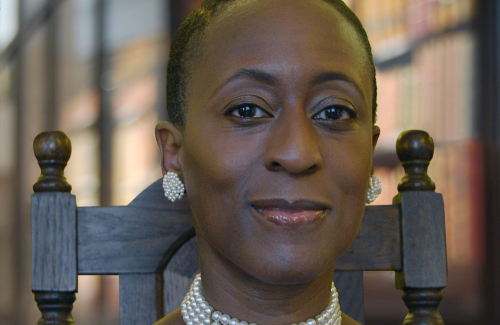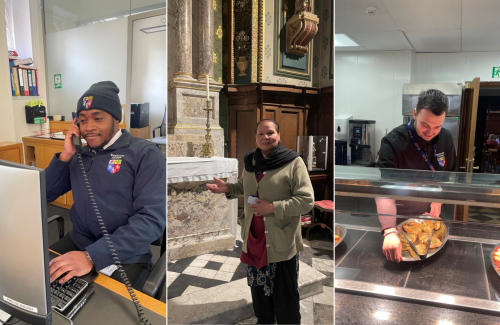More Pembroke news
Professor Hannah Smithson and Team Win Vice-Chancellor's Public Engagement with Research Award for ‘The Ordered Universe’
NEWS |
Pembroke Fellow and Tutor in Experimental Psychology, Professor Hannah Smithson, is the co-investigator of cross-disciplinary research project ‘The Ordered Universe’ which has been recognised at the inaugural Vice-Chancellor’s Public Engagement with Research Awards 2016.
The prize, announced on Friday 1st July at Merton College, University of Oxford, was one of just six presented at the ceremony selected from more than 80 submissions. The awards were jointly hosted by Professor Sarah Whatmore (Academic Champion for Public Engagement) on behalf of Merton College and the Vice Chancellor, Professor Louise Richardson.
Prof. Smithson and her team won in the Communications category, which celebrates projects the judges feel have informed and inspired the public about academic research. Their project, called ‘The Ordered Universe: Engaging with Medieval and Modern Science through the Radical Interdisciplinarity’, aims to bring together scientists, humanities scholars and the public to explore the scientific writings of the remarkable English thinker Robert Grosseteste (c. 1170-1253) and to challenge misconceptions about the categorisation of scientists v. non-scientists and the sophistication of medieval scientific thinking.
Platforms for engaging the public with the project have included science and arts festivals, hands-on demonstrations of experiments and reading of medieval texts, and the team even worked with artists on The World Machine for the Durham Lumière Festival 2015 with an audience of around 400,000 people. ‘The Ordered Universe’ attempts to engage as broad a section of the public as possible in the programme, in particular targeting 15-19 year olds and local community groups.
The Ordered Universe team has attracted recognition for pioneering new ways of working across disciplines and with the public – the project has previously been showcased by the AHRC as a model of transformative practice in humanities research and was shortlisted for THE Research Project of the Year 2014.
Prof. Smithson commented: ‘Engaging the public with the research teaches us a lot: explaining ideas to new audiences sharpens the ideas themselves; questions from audiences inspire new ways of thinking about the material; and the experience of giving to others our sense of wonder at our subjects generates energy for further study. Through creative collaborations we have also been challenged to think more deeply about the implications of Grosseteste’s hypotheses and the reciprocal relationship between understanding the present and the past.’
The Vice-Chancellor’s Public Engagement with Research awards are new for 2016 and were set up as a means of rewarding those who undertake high quality Public Engagement with Research, defined as the many ways the public can be involved at any stage of the design, conduct and dissemination of the research process.

